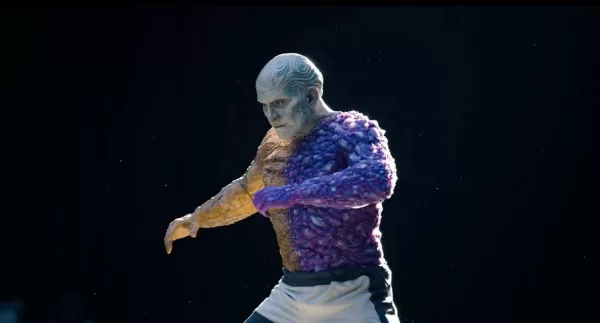Lawsuit muddles search for 'Stellar Blade'
A Louisiana film production company, "Stellarblade," is suing Sony and Shift Up, the developer of the PS5 game Stellar Blade, for alleged trademark infringement. This legal battle highlights a clash between a smaller business and a major gaming corporation over strikingly similar names.

Trademark Dispute Takes Center Stage
The lawsuit, filed earlier this month in a Louisiana court, centers on the use of the nearly identical names "Stellarblade" and "Stellar Blade." Stellarblade, owned by Griffith Chambers Mehaffey, provides commercial, documentary, music video, and independent film production services. Mehaffey claims that Sony and Shift Up's use of "Stellar Blade" for their game has negatively impacted his business. He alleges diminished online visibility, arguing that potential clients struggle to find his company amidst the game's prominent search results.

Mehaffey seeks monetary damages, attorney fees, and an injunction to prevent further use of the "Stellar Blade" name and any variations. He also demands the destruction of all Stellar Blade marketing materials. The crux of the argument rests on the similarity of the names and logos, including a stylized "S," which Mehaffey argues are confusingly similar.

Timeline of Events and Trademark Registrations
Mehaffey registered the "Stellarblade" trademark in June 2023, following a cease-and-desist letter to Shift Up the previous month. He's owned the stellarblade.com domain since 2006 and operated his film company under that name since 2011. Shift Up, meanwhile, registered the "Stellar Blade" trademark in January 2023, after initially using the working title "Project Eve" for the game. The lawsuit argues that Shift Up and Sony should have been aware of Mehaffey's prior rights.

Mehaffey's lawyer contends that the game's success has overshadowed his business online, creating significant hardship. They highlight the importance of protecting smaller businesses from the potentially monopolistic practices of larger corporations. It's important to note that trademark rights can have retroactive application, potentially extending protection beyond the official registration date. The outcome of this case will likely set a precedent for similar disputes in the future.
-
DC Studios has debuted a new Superman trailer showcasing three minutes of the highly anticipated film.Directed by James Gunn and set for release on July 11, 2025, the movie features a diverse ensembleAuthor : Michael Dec 18,2025
-
This week, Sonos is offering an additional 25% off nearly its entire range of certified refurbished headphones, soundbars, and speakers. Combined with existing discounts, this brings total savings up to 50%. Some items, like the Era 100 speaker, AceAuthor : Riley Dec 18,2025
-
 Spider Lego Battle TransformDownload
Spider Lego Battle TransformDownload -
 Pocket Land ModDownload
Pocket Land ModDownload -
 House Flipper: Home DesignDownload
House Flipper: Home DesignDownload -
 Kelime ÇarkıDownload
Kelime ÇarkıDownload -
 Circus Words: Magic PuzzleDownload
Circus Words: Magic PuzzleDownload -
 Escape from Her II: CorruptionDownload
Escape from Her II: CorruptionDownload -
 Blox Fruits Dating SimulatorDownload
Blox Fruits Dating SimulatorDownload -
 Words Words Words - Make MoneyDownload
Words Words Words - Make MoneyDownload -
 Nymphomania: Idle BrothelDownload
Nymphomania: Idle BrothelDownload -
 Slots - Lotto JackpotDownload
Slots - Lotto JackpotDownload
- Mastering Two-Handed Weapons in Elden Ring: A Guide
- Roblox Simulator Codes: Unlock Exclusive Rewards!
- Wuthering Waves: Uncover the Secrets of Whisperwind Haven's Palette
- Top 25 Palworld Mods to Enhance Your Game
- Ultimate Guide to Shinigami Progression in Hollow Era
- Karl Urban Debuts as Johnny Cage in Mortal Kombat 2











![Back to the Roots [0.8-public]](https://images.ydxad.com/uploads/44/1719584089667ec55970d05.png)

